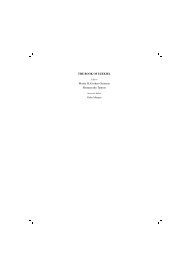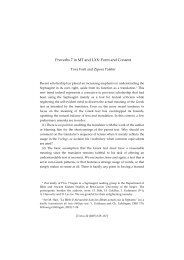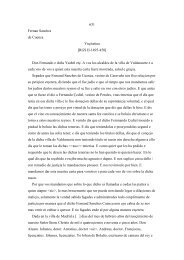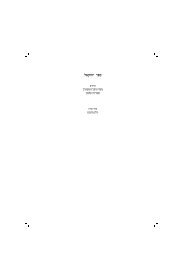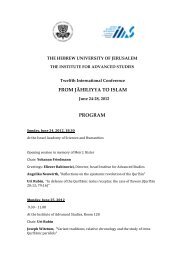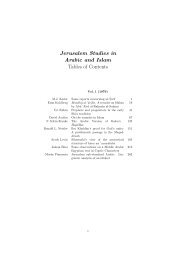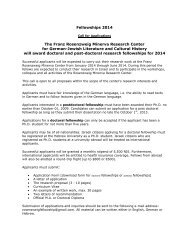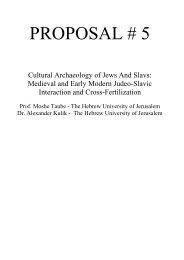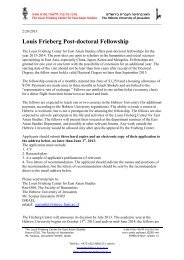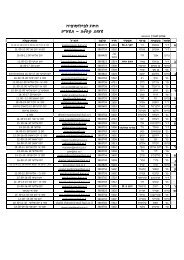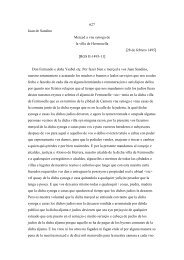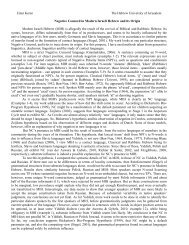Baber Johansen
Baber Johansen
Baber Johansen
Create successful ePaper yourself
Turn your PDF publications into a flip-book with our unique Google optimized e-Paper software.
25<br />
(jawhar) and accident (ÝaraÃ). Then he subdivides the accidents<br />
into those for which life is a condition, such as knowledge, will,<br />
the capacity to act, speech, hearing and vision (baÒar) and into<br />
those which are independent of life […]. He subdivides the<br />
substance into animals, plants, and minerals and explains that<br />
their differences arise from [the differences between] the species<br />
or the accidents. Then he looks into the eternal and explains that it<br />
is not multiple and is not subdivided in the way entities that<br />
sprung into existence in time are subdivided, but that it rather is<br />
one, and that it is distinguished from entities that sprung into<br />
existence in time through qualities which necessarily belong to it<br />
and through things that are inconceivable with regard to it and<br />
through qualifications (aÎkÁm) that are applicable to it but are<br />
neither necessary nor inconceivable. He [the theologian] separates<br />
between what is admissible, obligatory, and inconceivable<br />
concerning the eternal. Then he explains that the foundational<br />
quality of acting (aÒlu l-fiÝl) is admissible with regard to [the<br />
divine] and that the world is its admissible act and that it [i.e. the<br />
divine or the world], because that is admissible, was in need of<br />
created entities (muÎdath) and that sending the Prophets is among<br />
His [God’s] admissible acts, that He is capable of it and of<br />
establishing their truthfulness through miracles and this [category<br />
of] the admissible has in fact become reality. Here, the [rational<br />
and authoritative] speech of the theologian breaks off and the<br />
[free] use of reason ends. Rather, reason indicates the truthfulness<br />
of the Prophet, then it sets itself aside and acknowledges that it<br />
received and accepted from the Prophet what he says on God and<br />
the last day, [things] that reason cannot by itself comprehend but<br />
which it also cannot declare to be inconceivable. The sacred law<br />
(sharÝ) here brings what reason by itself is unable to comprehend,<br />
as reason independently cannot comprehend that obedience [to<br />
God] is the cause for happiness in the world to come, and that<br />
disobedience is the cause of misery [in the hereafter]. 79



